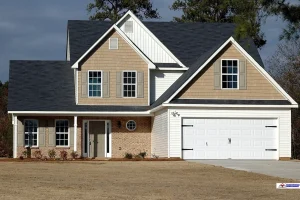
Property insurance premiums are on the rise. Construction industry labor shortages, increased inflation, more frequent and intense natural disasters, and disruptions in the supply chain brought on by the epidemic all play a role. The tendency is expected to continue, analysts predict.
However, there are steps you may take to reduce your premium without sacrificing coverage. How to save money on home insurance: some suggestions.
Avoid foregoing protection in the name of frugality.
In the near term, you could save money on your premium by going without coverage. However, if a catastrophe occurs, you will be responsible for paying to have your house repaired and any lost possessions replaced.
Having homeowners insurance means you won't have to worry about for costly repairs out of pocket. Carole Walker, executive director of the Rocky Mountain Insurance Information Association and a resident of Denver, states, “What you're insuring your property for is the expense to repair and rebuild.” To paraphrase, “It is a major investment that will affect the rest of your life.”
In addition to keeping your homes insurance, it's important to keep policies like the National Flood Insurance Program's flood insurance as well. Compare prices from independent insurers instead. There could be a more affordable choice. Understanding homeowners insurance premiums is essential when evaluating your coverage options. By reviewing factors like deductibles, coverage limits, and potential discounts, you can identify ways to reduce your overall costs without sacrificing important protections. Taking the time to research and customize your policies ensures you’re adequately covered while staying within your budget.
Walker also suggests routine contact between homeowners and their insurance broker. You should give as much information as possible about your house and goods to the insurance company.
Raise the deductible
One surefire method to reduce the cost of homeowners insurance is to increase the deductible. However, you should only do this if you have enough money to cover the increased amount in the event of an emergency.
If you're on the fence about raising your deductible, think about how much you'd be willing to pay in the event that you actually needed to make a claim. Consider raising your deductible from $1,000 to $2,500 if, for instance, you can afford to pay up to $2,500 for repairs or replacement of lost property before filing a claim with your insurer.
Look around
It's a good idea to check with your home insurance provider or agent to see if you qualify for any additional discounts.
To save money, “bundling your policies is a terrific method to save,” as stated by Brian Pattillo, vice president of strategy at Goosehead Insurance in Westlake, Texas. Bundling vehicle and home insurance can save drivers and homeowners up to 30 percent, according to several insurance company websites.
Discounts may also be available for, depending on your location and insurance provider:
- Accepting bills electronically and setting up recurring payments.
- Putting in locks and alarm systems to keep people safe.
- Installing smoke alarms and stocking up on fire extinguishers is a must.
Accumulate credit
In most states, insurance prices are determined by a credit-based insurance score.
In the states of California, Maryland, and Massachusetts, it is illegal to utilize credit when determining the cost of insurance for a home, apartment, condo, or mobile home.
According to NerdWallet's 2022 research of house insurance prices from Quadrant Information Services, a person with poor credit spends an average of 76% more for homeowners insurance than someone with high credit in most areas because of this pricing mechanism.
If you make all of your payments on time and maintain your credit usage ratio below 30%, you will improve your credit score over time.
Filing minor claims should be avoided.
Avoid submitting claims, even minor ones, on your homeowner's insurance policy if at all possible.
Let's imagine a storm blows a limb onto your house and smashes your living room window. The insurance deductible is $1,000, but the cost to fix the window is $1,300. The insurance company will give you $300 if you file a claim, but they will probably raise your premium because of it. You can avoid filing a claim and paying the deductible by paying this amount out of pocket.
Walker recommends waiting to file a claim on your homeowner's insurance until you've suffered a far more significant, sudden, and unexpected financial loss.
Do what you can to safeguard your possessions.
Insurance premium discounts exist for homeowners who take precautions against common hazards.
Large amounts of property damage can be caused by natural disasters; if you live in an area prone to these events, you should take precautions to safeguard your home. If you reside in an area prone to wildfires, for instance, you should secure the eaves with fireproof materials and clear the space around the house of any combustible objects. Wind-resistant windows help reduce hurricane damage to a home that is vulnerable to severe winds.
Prevention measures, such as installing alarms and locking doors and windows, may also result in a reduced premium. If you have a security system that meets their requirements and additional safety features like deadbolts, your insurance company may offer you a discount. Tell your insurance company or agent if you've made any changes to your house.
Compare prices
The easiest approach to obtain a low rate on home owner's insurance is to get quotes from various providers and compare them side by side. Getting multiple quotes from different insurers at once can be time-consuming, but using a comparison tool can help speed up the process. Consider hiring a free agent instead to cut down on your workload. According to an email from Pattillo, “an independent agent may provide many estimates from a range of insurance carriers all at once, providing unbiased advice.”

James Smith is our editor. He is an accomplished and versatile news writer with over a decade of experience covering a wide range of topics, including politics, business, and real estate. Throughout his career, James has been dedicated to uncovering the truth and presenting unbiased, factual reporting to his audience.














